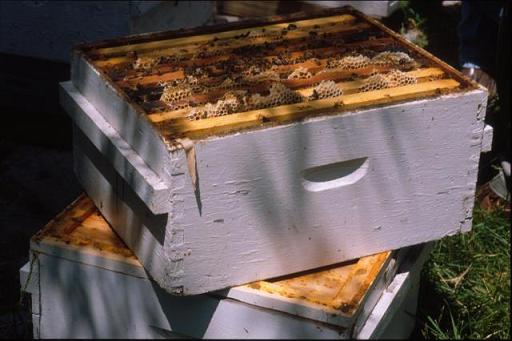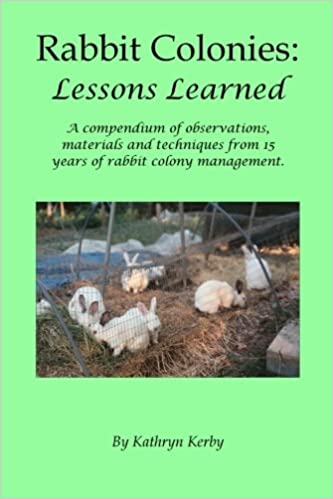|
Search this site for keywords or topics..... | ||

Custom Search
| ||

Honeybees
Honeybees are perhaps the quintessential symbol of fertility and abundance. Even from ancient Biblical times, a "land of milk and honey" was considered a land rich with fertility, health, wealth and happiness. Furthermore, many honeybee products or services - honey, wax, propolis, queens, new hives, and pollination, are all potentially profitable enterprises for a small farm or ranch business. This section of the website will explore those options, and some best practices for the small scale apiary.
Honeybee Equipment
Honeybee equipment is relatively simple compared to some other livestock operations. Yet sometimes the choices can seem overwhelming. And understandably, a new beekeeper will want to know which pieces are considered essential, and which are considered optional. We'll take a look at what's available for hive bodies, protective clothing, smokers, extractors and other supplies, where these supplies can be found, and which ones are generally considered the best choices for new beekeepers. We'll also show some advanced tools for the more advanced apiary manager, to help optimize the apiary.
Honeybee Biology
Success with honeybees, like success with any other species, requires an understanding of their biology. Their physical needs, their individual and social behaviors, their nutrition, their reproductive cycle, their foraging and pollination behaviors and their reactions to stressful events or circumstances. Once apiary owners understand these fundamentals, they can manage the apiary much more effectively. While this topic goes well beyond what we can offer here, we'll provide some fundamental information, and provide sources of additional information.
Honeybee Management
Some apiary owners believe in minimal management of their honeybee hives, relying instead on the bees' own abilities to provide for their own needs. Other apiaries are very proactive about monitoring populations, providing supplemental nutrition, testing for diseases and parasites, and either promoting or discouraging swarm behavior. We'll take a look at various management practices and strategies, and discuss the cost benefits versus the time, money and energy required to implement them. In this way, each beekeeper and apiary manager can choose which approaches are most appropriate.
Hive Stressors
This section might seem to have a rather odd title, but that title is very carefully chosen. Honeybee colonies face a wide variety of potential stressors. Some are due to parasites, or bacterial/viral infections. Some are due to environmental issues such as pesticide exposure, extreme heat, extreme cold, and either humid or dry conditions. Some are nutritional, such as poor foraging, poor nutritional value from the available forage, and honey harvests which deplete a hive's winter reserves. And some can best be described as predatory - hive robbing, insect infestations and damage caused by mammals such as skunks and bears. Honeybees have developed strategies to deal with all of these stressors, which apiary managers need to know so that they work in concert with, rather than against, these strategies. Yet honeybee colonies can also find themselves overwhelmed by any combination of the above, resulting in weakened hives, poor production, or hive death. We'll take a look at this complicated topic, and examine what apiary managers can do to monitor for and respond to hive stressors.
Honey Harvests
Many hobbyist and commercial scale beekeepers are involved with bees for the honey they produce. Some introductory beekeeper websites and books would make honey harvests sound absurdly easy. There is a certain amount of planning required for good honey harvests. And any honey harvest will require a certain amount of time, money and energy. We'll take a look at how to harvest honey as efficiently as possible, both for the beekeeper as well as for the long-term health of the hive. We'll also take a look at what it takes to harvest and sell honey profitably.
Pollination Services
Some beekeepers are not as concerned about honey production as they are about pollination services. Either they want the honeybees to pollinate their own crops, or they rent out the hives as a service to other growers. We'll take a look at some of the logistics of this service, and best practices for a safe, efficient and profitable pollination operation.
Other Honeybee Services
While honey and pollination are almost certainly the top two ways that beekeepers make money from their hives, those are certainly not the only two methods. Honeybees offer a wide range of other products and services, such as sale of propolis and wax, production of queens and starter hives known as nuc's, and even sting services which provide certain well documented health benefits. While these are certainly not as well known as honey and pollination, any/all of these services can be quite valuable in their own right. We'll take a look at each, and what it takes to provide each product or service.
Honeybee Books
Beekeeping enjoys a wide variety of books for the new and experienced.Click here to see a listing of the books we have used to get started with honeybees.
Our Successful Farming and Ranching Books

We released our very first self-published book. The Chicken Coop Manual in 2014. It is a full color guide to conventional and alternative poultry housing options, including 8 conventional stud construction plans, 12 alternative housing methods, and almost 20 different design features. This book is available on Amazon.com and as a PDF download. Please visit The Chicken Coop Manual page for more information.

Rabbit Colonies: Lessons Learned
We started with rabbits in 2002, and we've been experimenting with colony management ever since. Fast forward to 2017, when I decided to write another book, this time about colony management. The book is chock-full of practical information, and is available from both Amazon and as a PDF download. Please visit the Rabbit Colonies page for more information.
The Pastured Pig Handbook
We are currently working on our next self-published book: The Pastured Pig Handbook. This particular book addresses a profitable, popular and successful hog management approach which sadly is not yet well documented. Our handbook, will cover all the various issues involved with pastured hog management, including case studies of numerous current pastured pig operations. If you have any questions about this book, please Contact Us.